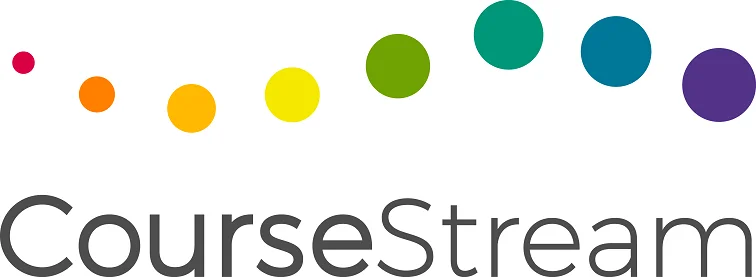Nutrition and Disease Home Study Course
This course deals with the management of foods to optimize health as well as covering different ways of eating, food toxicity, and detoxification. Can stand alone as well as building on Nutrition I and II.
Why Study this Nutritional Foundation of Disease Course?
If you’re interested in learning how to maintain one’s nutritional health, and in the process have the skills to give advice, this course is exactly that and much more! This online nutritional foundation of disease course will teach you all the foundations needed in order for you to earn the knowledge needed to maintain a state of good health, such as the health problems related to food, the different types of diet, the different methods to detoxify, and more.
Course Outline:
There are 8 lessons in this course:
- Nutrient Imbalance and Disease
- Food risk factors
- What disease is impacted by what nutrient issues
- Important nutrients often lacking in some diets
- Iodine
- Potassium
- Magnesium
- Calcium
- Iron
- Fats, lipids and cholesterol
- Cholesterol
- Fats -saturated, monosaturated, polyunsaturated
- Low salt or low sodium diets
- Sugars -components of different sweeteners
- Heart disease and diet
- Fats and heart disease
- Triglycerides and heart disease
- Heart affects of Cholesterol, sugar, salt, alcohol, carbohydrates, fish, etc
- Obesity and insulin
- Metabolic syndrome
- Cancer
- Protein-energy malnutrition (PEM)
- PEM in hospitalised people
- PEM types -primary, secondary, kwashiorkor, marasmus
- Diagnosis of PEM
- Treating PEM
- Prognosis for PEM partients
- PEM prevention
- Health problems and solutions
- Special considerations for pregnant and nursing women
- Special Project -a problem based learning project where you will investigate the relationship between nutrition an a particular disease (eg. Celiac disease, Osteoporosis or Diabetes).
- Dental Problems
- Tooth structure
- Anatomy of teeth
- Nutrition and dental health
- Fluoride intake
- Who needs fluoride
- Foods that supply fluoride
- Calcium intake
- The decay process
- Preventing plaque
- Nursing bottle syndrome
- Preventing dental problems
- Reasons to prevent tooth decay
- Causes of tooth decay
- Dental hygiene
- Homemade toothpastes and mouth washes
- Fibre and Diseases of the Bowel
- Understanding fibre
- How fibre works in the body
- Fibre in food -soluble and insoluble
- Health and dietary fibre
- Resistant starch
- How the digestive system works
- Conditions linked to low fibre diets
- Fibre and managing blood cholesterol
- Fibre and diabetes
- Fibre and weight control
- Increase your fibre
- Bowel checks
- Different ways of Eating
- How we eat is important
- Compatibility of ingredients
- Vegetarian, vegan and alternate diets
- Health considerations with not eating animal products
- Sourcing organic, vegetarian and vegan foods
- Alternative diets for young children
- Diet during pregnancy
- Food Toxicities and Sensitivities
- Allergies and sensitivities
- Differences between sensitivity, allergy, anaphylaxis and intolerance
- Allergies -common allergens, likely symptoms
- Natural toxins in foods
- Increase in rates of allergies
- Inheritance of allergies and intolerances
- Food allergy symptoms
- Anaphylaxis -causes, symptoms, treatment
- Causes of common food allergies and food intolerances
- Diagnosing and dealing with food sensitivities
- Avoiding the food
- Preventing food allergy in children
- Food laws and labels
- Special medical considerations
- Food Toxicity and Poisoning
- Causes of food poisoning
- Bacterial food poisoning causes, types of bacteria, prevention
- Bacillus cerus poisoning
- Campylobacter
- Campylobacter jejuni
- Clostridium perfringens
- Clostridium botulinum
- Enteropathogenic Escherichia coli
- Listeria spp.
- Salmonella spp.
- Staphylococcus aureus
- Vibrio parahaemolyticus
- Yersinia enterocolitica
- Treating bacterial poisoning
- Contamination from cooking -aluminium, copper, cooking source, wood preservatives.
- Contamination from food processing -eg. cleaning chemicals
- Effects of food preparation on nutrition -problems caused by cooking
- Food production and processing issues
- Milling and refining
- Additives, colourings, flavourings
- Deteriorating food
- Microorganisms
- Enzymes
- Mechanical deterioration
- Ripening fruit
- Low temperature damage
- Hygiene practices
- Detoxification or Body Cleansing
- Introduction
- Methods of detoxification
- Water and juice fasting
- Weekend mono diet
- Chelation therapy
- Fasting
- Side effects of fasting
- Water therapies
- Cathartics -laxatives, purgatives
- Acidophilus
- Herbal treatments -alfalfa, aloe vera, cranberry juice, echinacea, chamomile, parsley, etc
- Massage -lymphatic drainage, swedish massage
- Bowel Movements and urination
- Cautions
- Consulting and Giving Advice on Diet
- Legalities
- Insurance
- Professional bodies
- Holistic approach
- Ethics
- The consultation
- Compliance
- Setting a nutritional program
Enrol Now
- Experienced Tutor support
- Certificate sent to you
- Online study (Printed notes available)
- Self paced - no set timetable
- 12 months to complete course
From: $35.00 / week for 19 weeks






Get a Free Info Pack!










